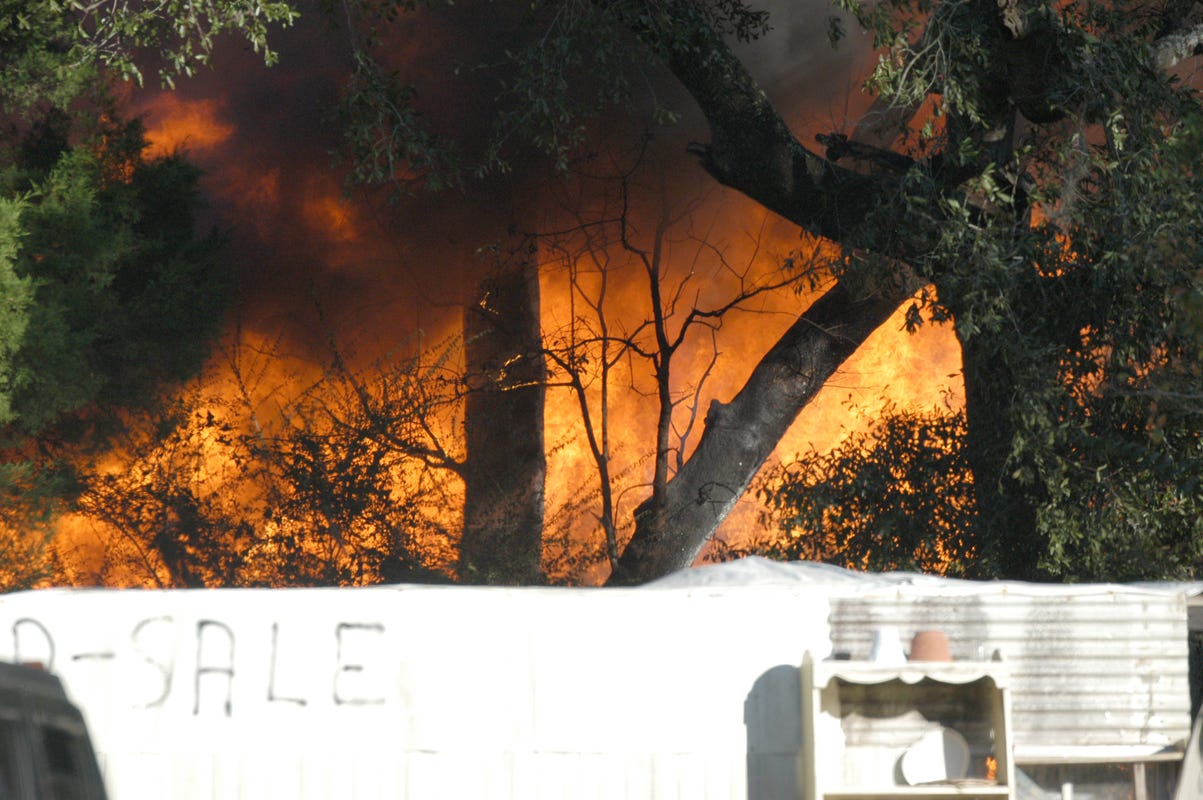
Daylight savings time ends at 1 a.m. Sunday morning and while you change your clocks fire officials remind you to change your batteries. The batteries, which need to be changed, are those in your home smoke detectors and carbon monoxide detectors. Almost 40 percent of fatal fire injuries occur in homes without working smoke detectors, while 24 percent of those happen in homes where at least one smoke alarm is present, but fails to operate, according to the International Association of Fire Chiefs. The reason for this according to the IAFC is due to dead or missing batteries. But as colder weather approaches, that is not the only concern you should have as an individual. Fire places, heaters, and other devices also need your attention. On Tuesday, an accidental fire caused by a faulty heater destroyed the home of James and Brenda Olsen. Fire fighters were called to 5374 Black Gate Rd. in East Milton, when the home heater caught fire as James Olsen was trying to light it due to the cool temperatures. "When the heater exploded it knocked me halfway across the living room," Olsen said. "It burn my eyebrows and got the ends of my fingers, but we are very fortunate to be alive. "We can replace the things we lost, but we cannot replace our lives." Olsen indicated he tried a couple of times to light the heater and on the third attempt it went "rheum" and flames went up the walls and across the living room. Milton Fire Chief John Reble cautioned everyone to pay close attention to the directions when trying to light a heater or even use their fireplace for the first time. "I strongly encourage you if you use your fireplace for heat or atmosphere to have it checked by a chimney sweep," Reble said. "It has not been used in six months and critters might have settled in the top or it could have been damaged by the winds and storms. "Another concern could be the build up of creosote if you burn pine or other sappy woods that could ignite and later burn down the house." Reble also pointed out the need to check the chimney flue and if there is an opening in the flue it could allow heat and smoke into your attic or crawl space. When it came to lighting a heater Reble had one simple instruction, follow the instructions and after a couple of tries to make sure you let it vent properly before trying again. As far as smoke detectors, just replacing the batteries this weekend is not the only need to maintain them. Reble pointed out the need to test them monthly and replace them every 10 years. It is suggestion you have a smoke detector outside every room someone sleeps in as well as the main hallway and living area. While many use a full size heater some also use a space heater to help with rooms hard to heat or if they stay cold. "You should make sure they are well maintained and keep them away from plants, curtains, and other items that could catch fire," Reble said. "Also make sure you have one that has a tip control safety just in case it gets knocked over. "Before using the space heater check the wires for breaks or shorts as well." If you do encounter a fire, Reble suggest you have a fire extinguisher or two as well in well-placed areas of the home, including the kitchen. "The first thing we tell people is not to take the pan and move it outside," Reble said. "Moving it just add oxygen or fuel to the fire. "Have a fire extinguisher and check it annually." Reble noted many get the little 1A fire extinguisher, but he suggested a 2A/1BC or larger fire extinguisher for your home. "There is not enough in a really small fire extinguisher unless you are trained on how to use it properly and by the time you figure it out you are out of the agent to put out the fire," Reble said. "The larger extinguishers have a hose and that will help you direct the agent onto the fire to put it out. "But make sure you read the instructions and check the gauge to make sure it is fully charged.
This article originally appeared on Santa Rosa Press Gazette: Change your clock, change your battery
